Abstract
AIM: To evaluate the attitudes and experiences of funeral directors in relation to necropsies. METHODS: All 1631 members of the National Association of Funeral Directors were surveyed by postal questionnaire about the purposes of necropsies, the technical and administrative problems associated with necropsied cases and their relations with relatives, mortuaries and pathology departments. RESULTS: In total, 123 funeral directors completed the questionnaire (8% response rate). Workload, proportion of cases necropsied and type of mortuary did not influence answers. Necropsies were considered important for the assessment of treatment outcome, identification of inherited disease and junior pathologist training, but not for medical audit. There was strong support for more education about necropsies. The areas of necropsy practice most frequently discussed with relatives related to concerns about funeral delay and the involvement of the coroner or equivalent authority. Funeral directors occasionally counselled relatives for or against giving necropsy consent. The commonest technical problems associated with necropsies were difficulties in embalming, leakage of body fluids and scalpel penetration in visible areas. Few administrative problems were reported; the commonest was inflexibility in body collection times. There was strong support for a national code of practice to cover relations between funeral directors and mortuaries despite general satisfaction with relations with local pathology departments. CONCLUSIONS: Although the relation among the funeral profession, mortuaries and pathology departments is largely satisfactory, a national code of practice for funeral directors and mortuaries is desirable.
Full text
PDF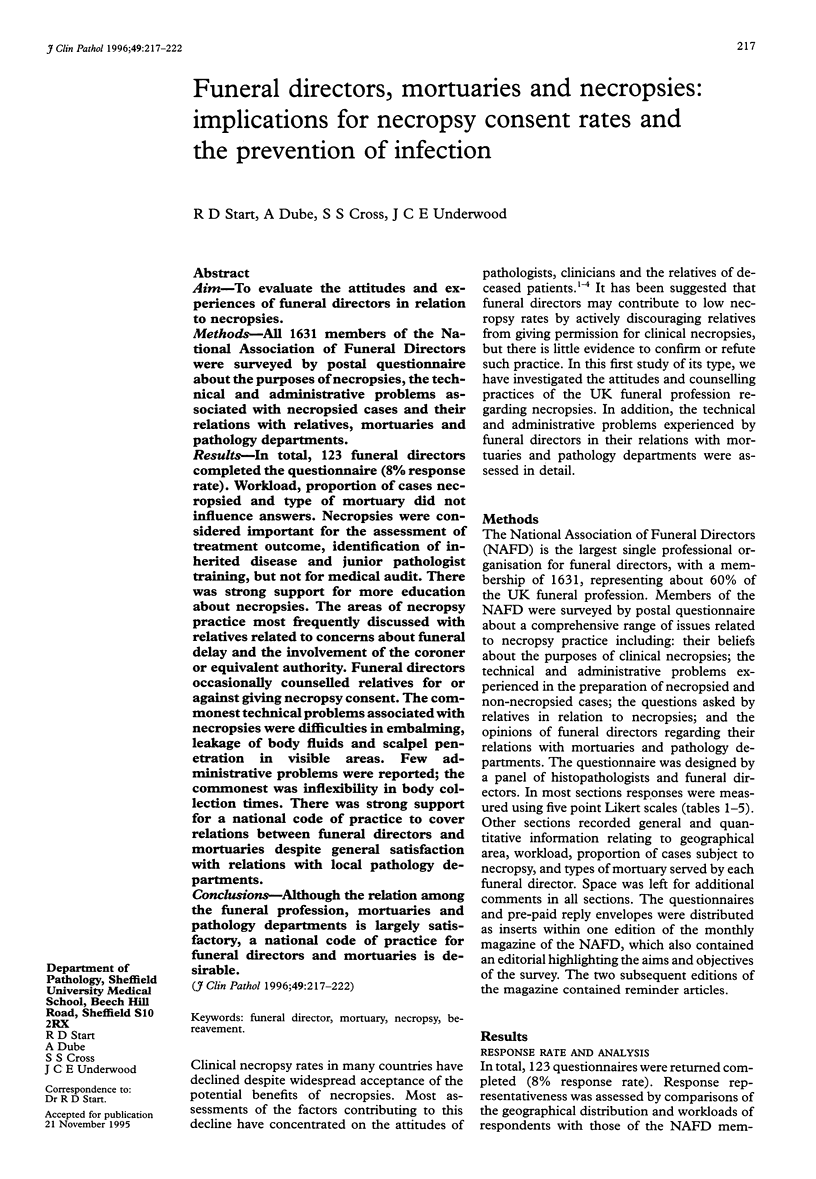
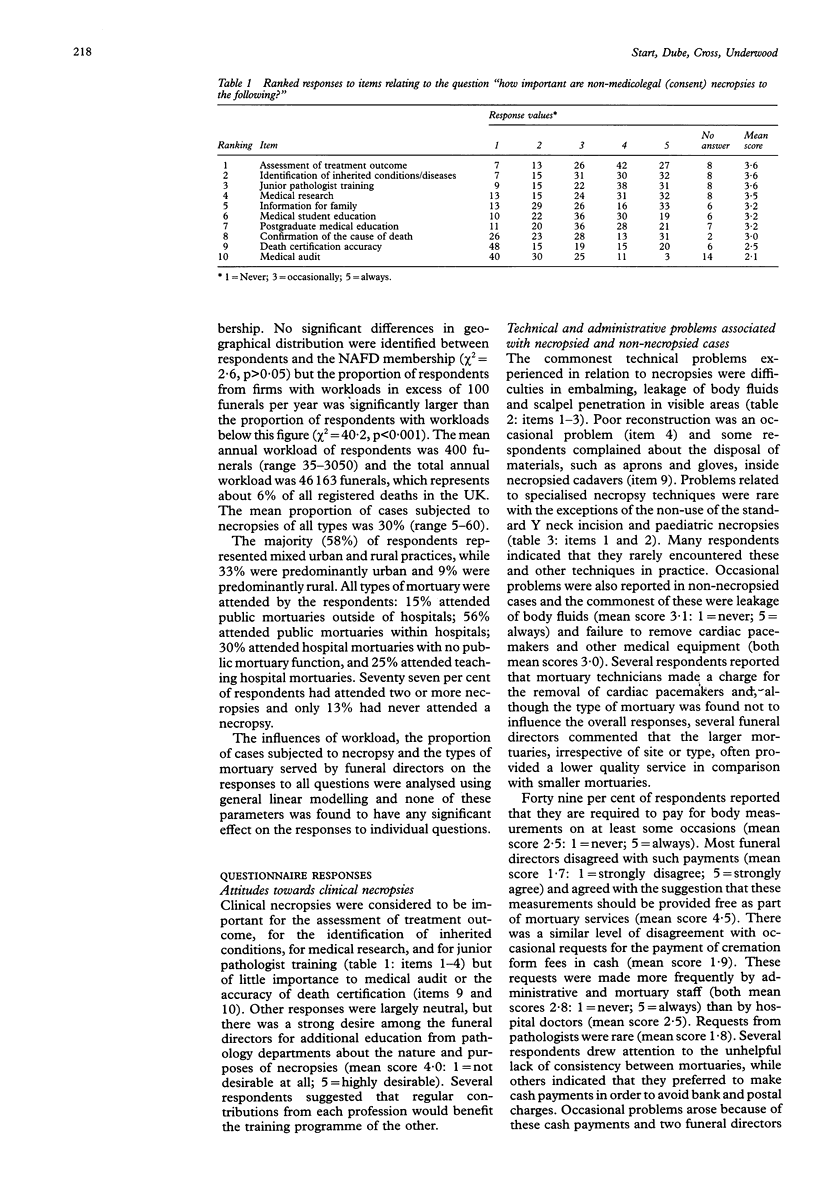
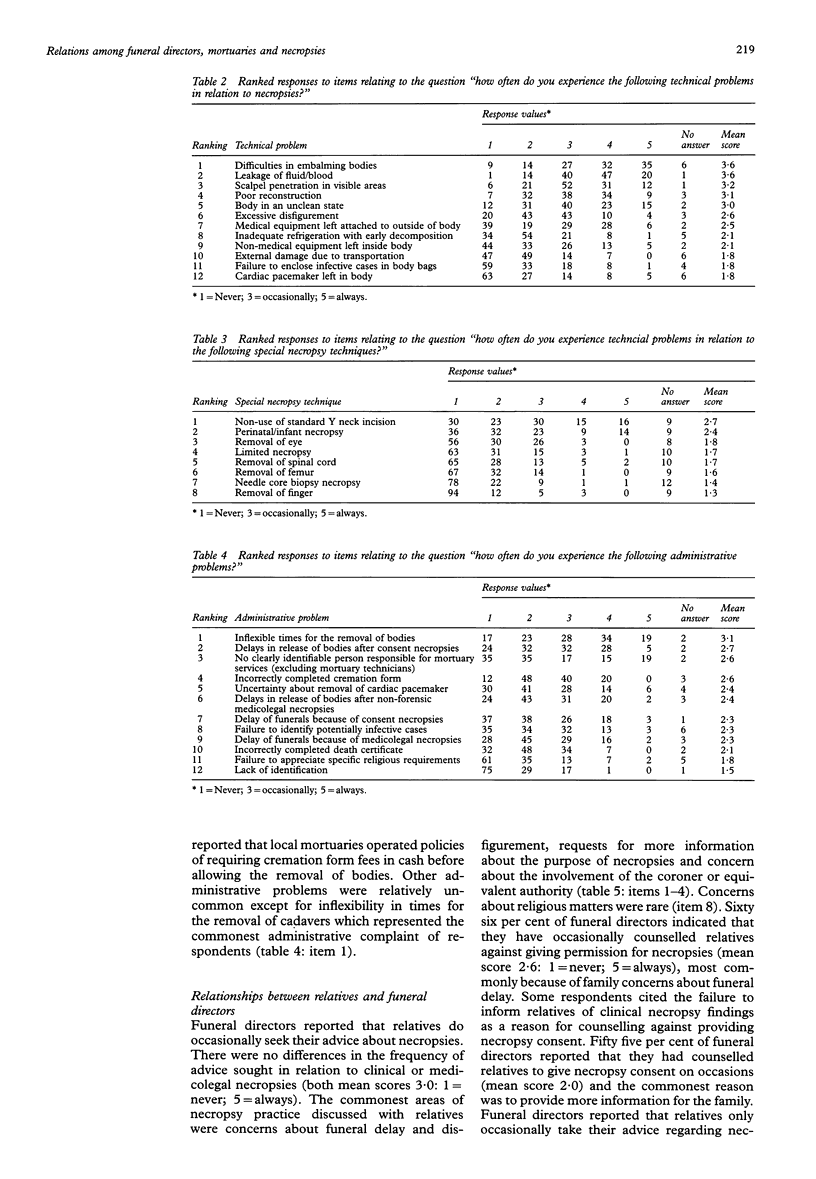
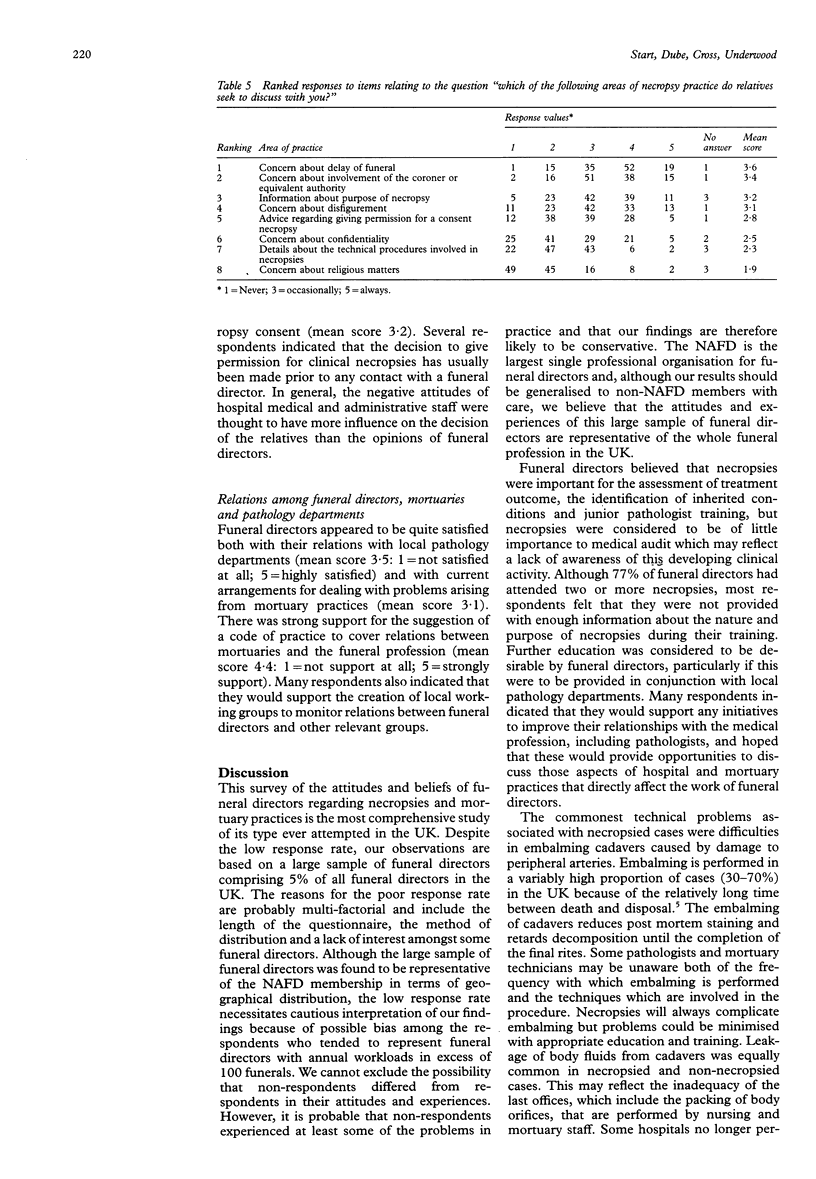
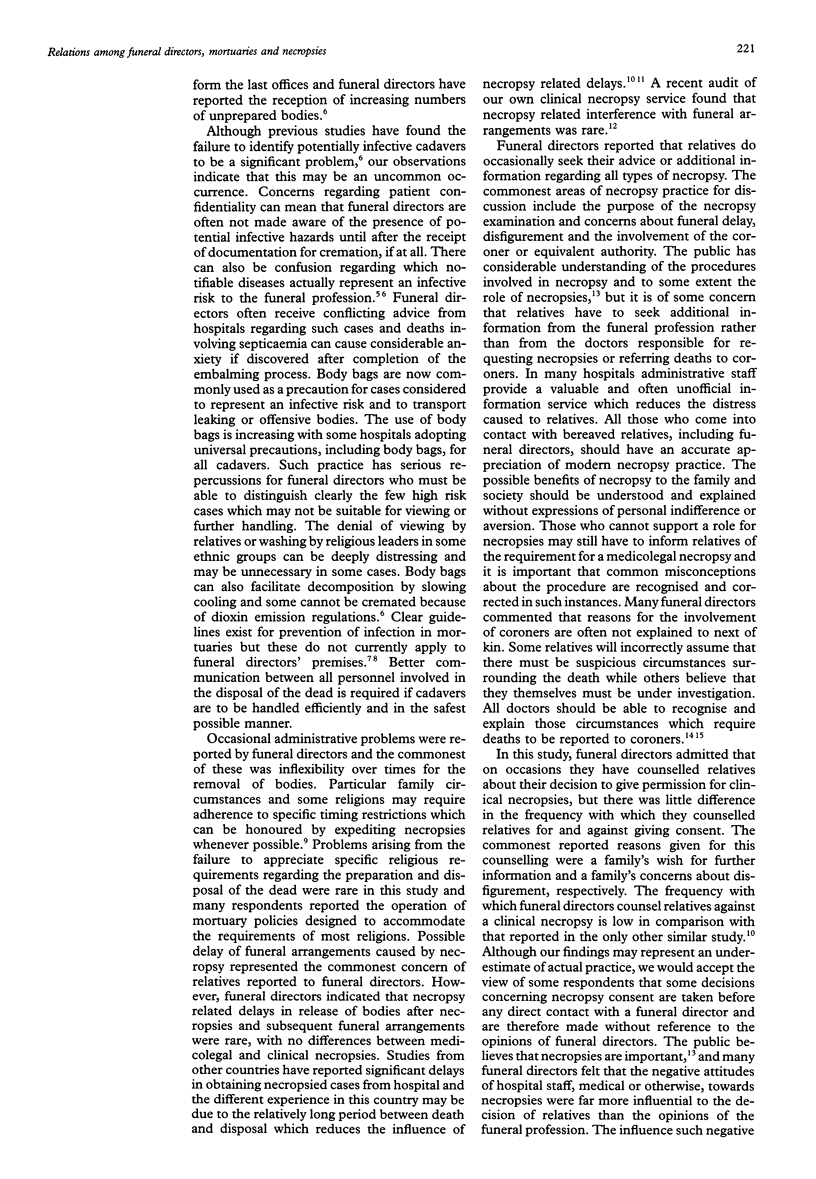
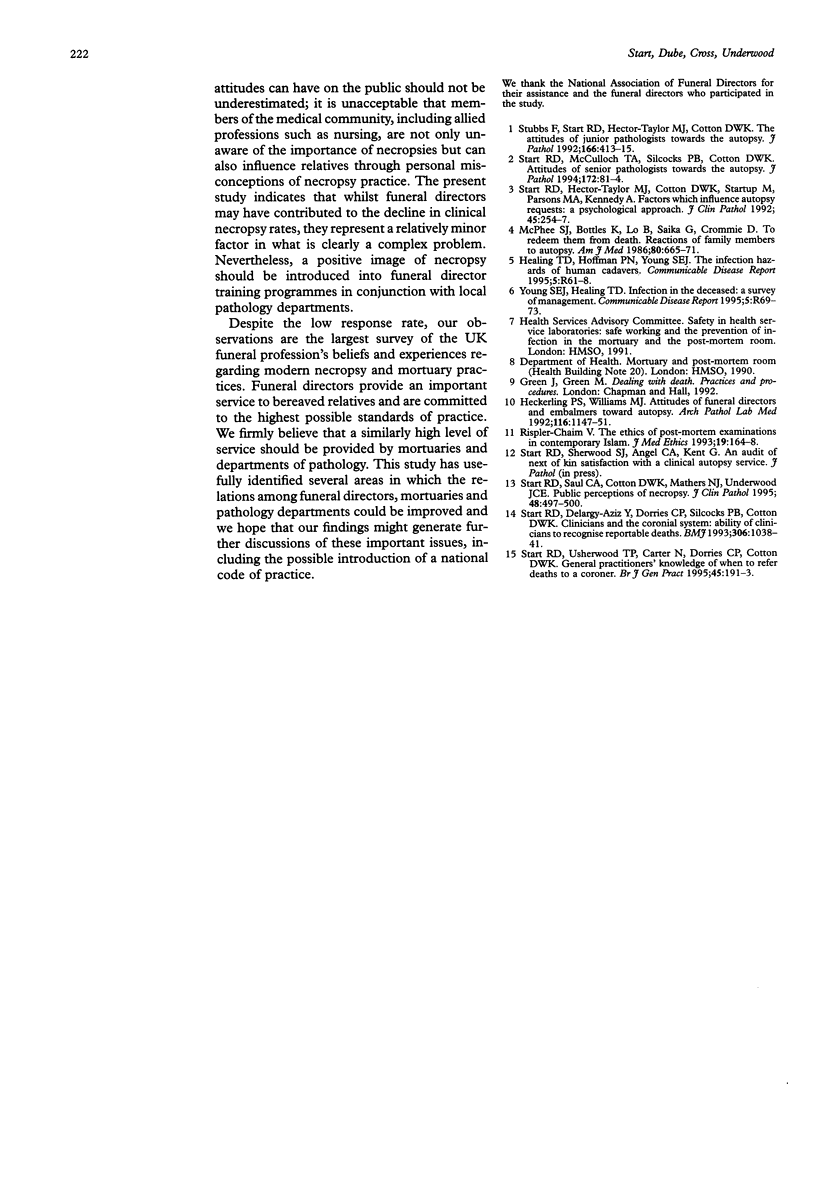
Selected References
These references are in PubMed. This may not be the complete list of references from this article.
- Heckerling P. S., Williams M. J. Attitudes of funeral directors and embalmers toward autopsy. Arch Pathol Lab Med. 1992 Nov;116(11):1147–1151. [PubMed] [Google Scholar]
- McPhee S. J., Bottles K., Lo B., Saika G., Crommie D. To redeem them from death. Reactions of family members to autopsy. Am J Med. 1986 Apr;80(4):665–671. doi: 10.1016/0002-9343(86)90822-3. [DOI] [PubMed] [Google Scholar]
- Rispler-Chaim V. The ethics of postmortem examinations in contemporary Islam. J Med Ethics. 1993 Sep;19(3):164–168. doi: 10.1136/jme.19.3.164. [DOI] [PMC free article] [PubMed] [Google Scholar]
- Start R. D., Delargy-Aziz Y., Dorries C. P., Silcocks P. B., Cotton D. W. Clinicians and the coronial system: ability of clinicians to recognise reportable deaths. BMJ. 1993 Apr 17;306(6884):1038–1041. doi: 10.1136/bmj.306.6884.1038. [DOI] [PMC free article] [PubMed] [Google Scholar]
- Start R. D., Hector-Taylor M. J., Cotton D. W., Startup M., Parsons M. A., Kennedy A. Factors which influence necropsy requests: a psychological approach. J Clin Pathol. 1992 Mar;45(3):254–257. doi: 10.1136/jcp.45.3.254. [DOI] [PMC free article] [PubMed] [Google Scholar]
- Start R. D., McCulloch T. A., Silcocks P. B., Cotton W. K. Attitudes of senior pathologists towards the autopsy. J Pathol. 1994 Jan;172(1):81–84. doi: 10.1002/path.1711720113. [DOI] [PubMed] [Google Scholar]
- Start R. D., Usherwood T. P., Carter N., Dorries C. P., Cotton General practitioner's knowledge of when to refer deaths to a coroner. Br J Gen Pract. 1995 Apr;45(393):191–193. [PMC free article] [PubMed] [Google Scholar]
- Stubbs F., Start R. D., Hector-Taylor M. J., Cotton D. W. The attitudes of junior pathologists towards the autopsy. J Pathol. 1992 Apr;166(4):413–415. doi: 10.1002/path.1711660415. [DOI] [PubMed] [Google Scholar]



